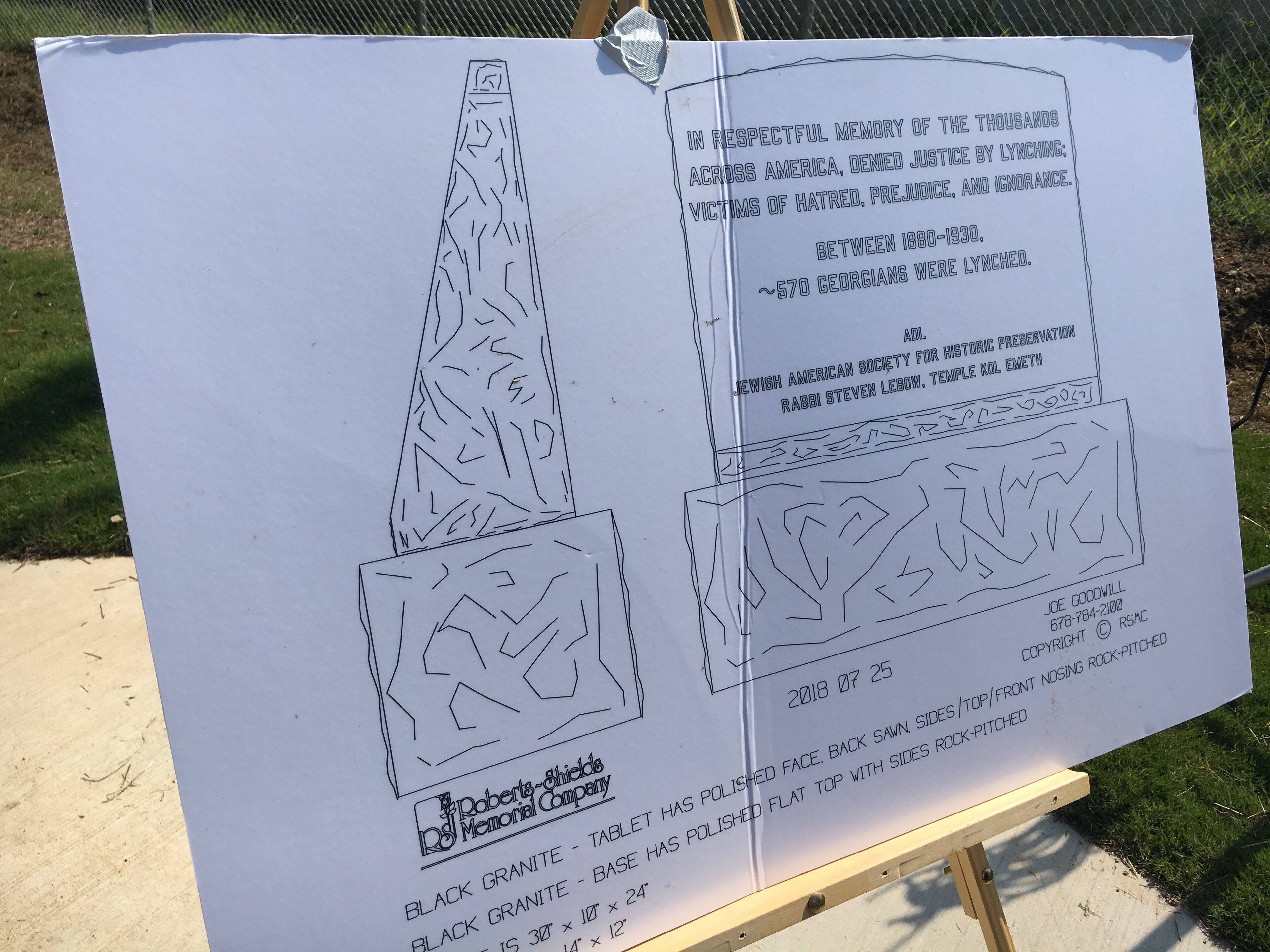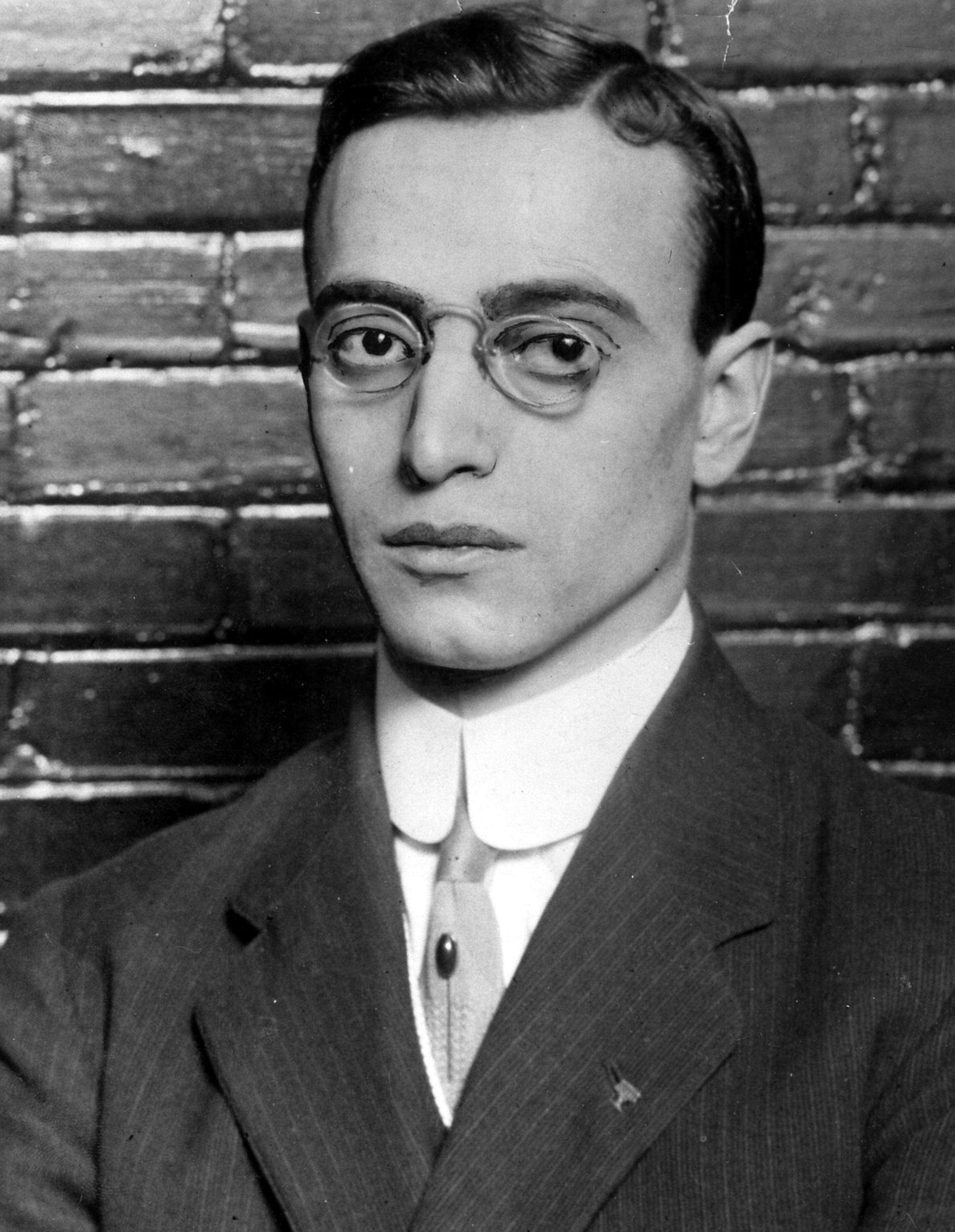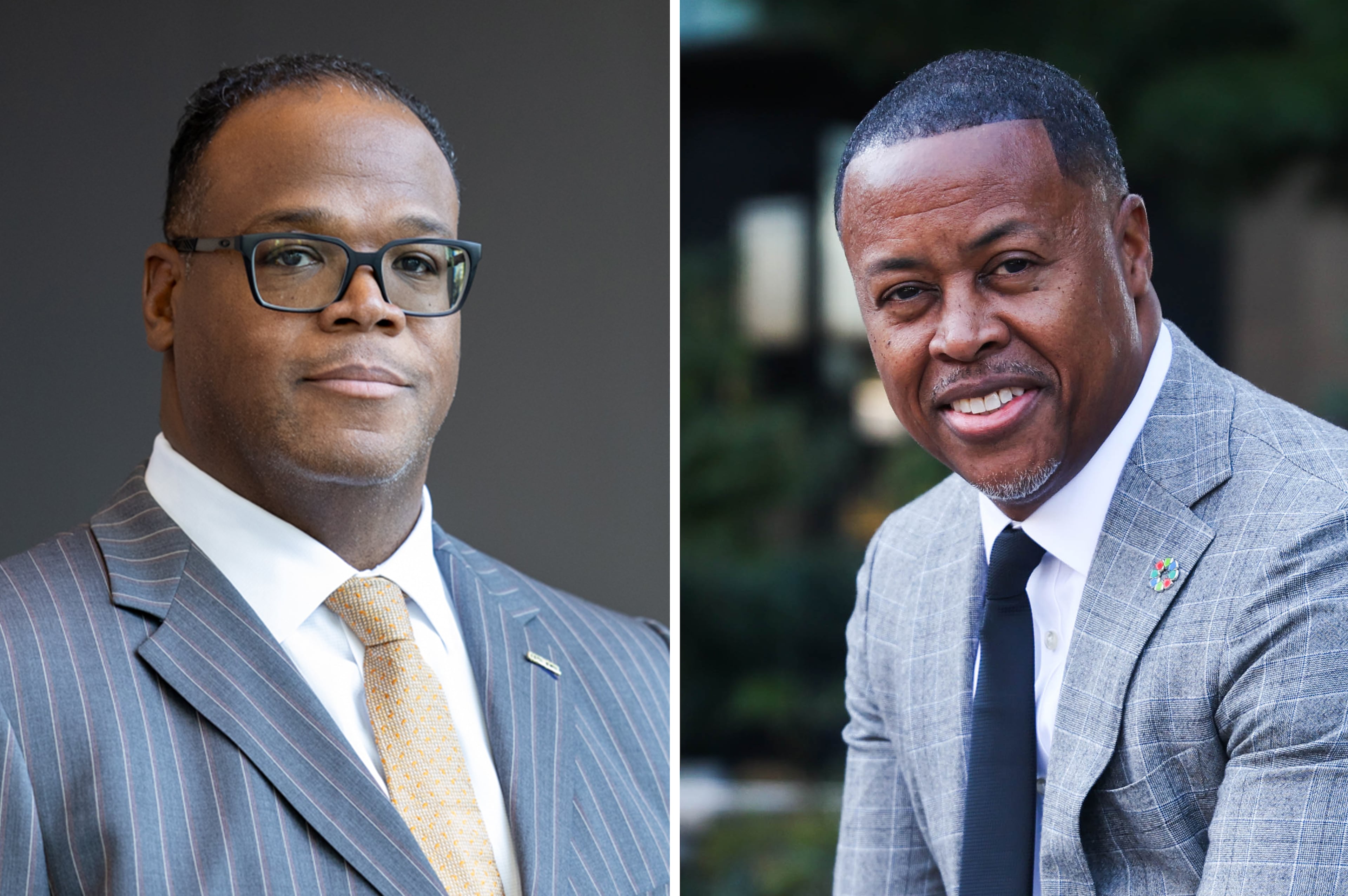Cobb’s Leo Frank memorial site is getting a national lynching marker
Just past the parking lot of El Huarache Veloz, about 50 people gathered Thursday to commemorate Georgia’s most famous example of anti-Semitism.
Across the street from that parking lot 103 years ago, a mob hanged Leo Frank in a hollow oak on land belonging to a former Cobb County sheriff.
The crowd was there Thursday to rededicate a Georgia Historical Society plaque marking the area near where Frank, a Jewish man wrongfully accused of murder, was lynched.
The marker, originally installed in 2008, had safely been in a Georgia Department of Transportation warehouse for four years due to construction of the Northwest Corridor Express Lanes. It has been moved across Roswell Road to the north side of the Cobb artery.
Frank's lynching was only unique in that he was a white man. Exact tallies are impossible, but Georgia hanged more people than most states, the majority of whom were black.

“We had to back off a bit and see it in a larger context,” said Rabbi Steve Lebow of Temple Kol Emeth in Marietta.
That’s why they have plans to build a memorial for all of America’s lynching victims, which highlights the hundreds of Georgians killed.
The organizers got approval for the three-foot-tall Georgia black granite marker Wednesday morning. By Thursday’s gathering, it had already been ordered.
An Anti-Defamation League member read part of a letter from U.S. Rep. John Lewis at the event: "It is difficult to explain how significant and impactful it will be to have such a tribute at the newly named Leo Frank Memorial. Our nation is steadily moving forward in an attempt to erase the pain caused by hate and injustices based on racism and fear."
The new area — on the northwest corner of Roswell and Freys Gin roads — has its own sidewalk with bushes. Attendees on Thursday planted a crepe myrtle, a Jewish tradition to honor someone who has died.
Jerry Klinger erects Jewish memorials across the nation as president of the Jewish American Society for Historic Preservation, and said it's rare to get a setup as nice as the one in Cobb.
Klinger made sure construction didn’t erase the history behind the Frank memorial.
Frank was convicted of killing 13-year-old Mary Phagan, who worked at the pencil factory Frank ran. Gov. John M. Slaton commuted Frank's sentence two days before the execution.
Rioters ran the governor off, and he didn't return for a decade.
Frank was transferred to the state prison farm in Milledgeville, where he survived a knife attack from a fellow inmate.
The mob came for him there the night of Aug. 16, 1915.

In a meticulous plan — cut telephone wires, circuitous routes to lose anyone tailing them, in and out in 30 minutes — the group snatched up Frank, handcuffed with his legs tied at the ankles, and drove him back to Marietta.
The names of his captors may never be confirmed, but scholars float lists that include notable families in the area.
Some say the first plan was to hang him in Marietta Square. They landed on the former sheriff’s property, where pictures of his dangling body were taken and cords of the rope were sold.
But why?
"He operated a sweatshop. He employed teenage girls. A Jewish industrialist with an Ivy League degree. He played into the worst dynamic you can imagine," Steve Oney, former newspaper writer and recognized expert-author on Frank's murder, told The Atlanta Journal-Constitution for a 100-year anniversary story.
In the trial, the state’s main witness was Jim Conley, a janitor at the National Pencil Company. He said he helped Frank dispose of the girl’s body.
But close to death in 1982, what was once a scared boy told a different story to two reporters with Nashville’s Tennessean newspaper.
Acting on a tip, they found the 83-year-old man who worked at the factory as a boy and said he saw Conley carrying Phagan's body inside the factory the day of her death. Alonzo Mann remembers Conley saying he'd kill him if he spoke. Conley had been dead for 20 years when Mann spoke to the reporters; he passed lie detector tests when telling his story.
From the editor of The AJC | Opinion: Tough decisions withstand time's test

In light of Mann’s admission, Atlanta attorney Dale Schwartz pushed for Frank’s pardon. After being denied once, he and others pushed again and had the state agree to pardon Frank not on the grounds of innocence, but that he didn’t get a fair trial.
As a matter of record of Georgia, Leo Frank still murdered Mary Phagan.
A full clearing of Frank’s name is the next goal for many in attendance Thursday. But, for now, having the plaque back means a lot.
“They don’t establish signs for people who were actually guilty,” Lebow said.
Like Cobb County News Now on Facebook | Follow us on Twitter



